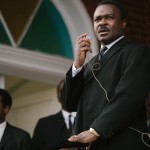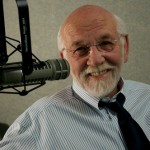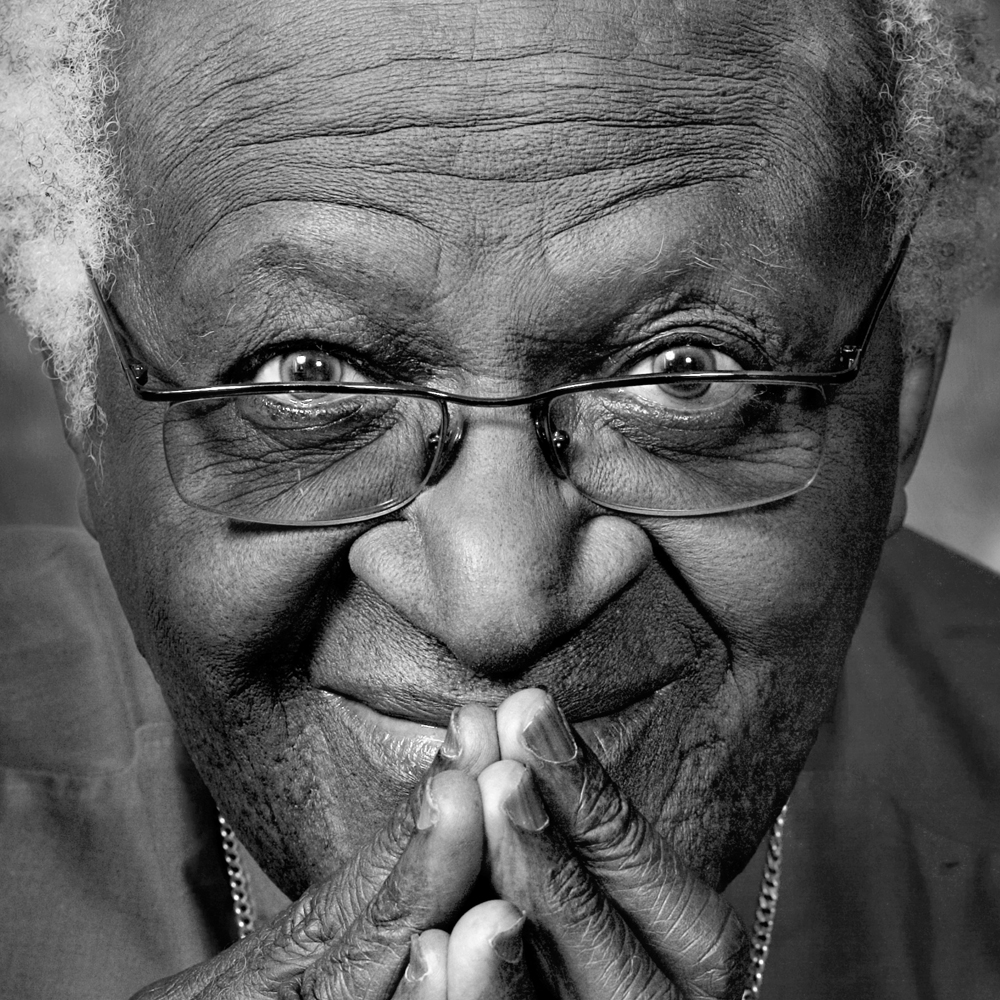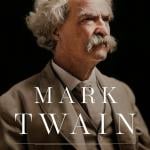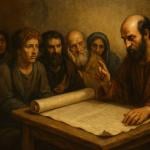JESUS WAS A MONARCHIST:
YOUR DAILY DOSE OF RELIGION IN POLITICS (NO SHOVING ALLOWED)
____________________________________________________________________________________
This weekend, the Boston Globe (shepherded by my homechunk Religion Reporter Michael Paulson) launched a multi-part, interactive series about Republican Presidential candidate Mitt Romney’s Mormon roots called THE MAKING OF MITT ROMNEY. It’s excellent and well-worth cheking out. (Registration is required.)
Here are a few highlights:
Privilege, tragedy, and a young leader
By Neil Swidey and Michael Paulson, Globe Staff | June 24, 2007
BERNOS-BEAULAC, France — By the time he saw the black Mercedes barreling into his lane, there was nothing Mitt Romney could do.
He was 21, buoyed by a recent promotion, a young man finally on his way. Two years of getting doors slammed in his face as a Mormon missionary in France had tested him like nothing before in his privileged life, revealing a drive and seriousness that had been absent during his breezy childhood. Now he was the assistant to the president, a top job in the French mission, and behind the wheel of a luxury silver Citroen packed with church officials visiting congregations in southern France.
He knew these roads were dangerous. That very afternoon in June of 1968, on the way from Pau to Bordeaux, he had pulled over to remove a roof rack lying in the middle of the road, a remnant of an earlier accident.
His own crash was swift and brutal. The Mercedes, driven southbound by a Catholic priest, passed a truck, missed a curve, and shot into the northbound lane at a high rate of speed.
”It happened so quickly that, as I recall, there was no braking and no honking, it was like immediate,” Romney said in a recent interview. ”I remember sort of being hood-to-hood. And then pretty much the next thing I recall was waking up in the hospital.”
Trapped between the steering column and the driver’s-side door, Romney lost consciousness. The mission president, Duane Anderson, was seriously injured on the other side. Anderson’s wife, Leola, who had been sandwiched between them, bore the brunt of the impact. Crushed in the wreckage, she survived long enough to speak her dying words in an ambulance to a Frenchwoman who couldn’t understand what she was saying.
Sister Anderson, as she was called within the small world of Mormons in France, was a beloved den mother to the 200 missionaries. Her husband was physically and emotionally broken, and returned to the United States to bury his wife and salve his wounds.
Romney responded differently. Since birth, his parents had invested great ambition in their youngest child. Yet his sheltered life had given him few opportunities to show himself worthy of such expectations. Now, with tragedy in the French mission, and chaos in the late 1960s air, Romney emerged as a leader. In President Anderson’s absence, the 21-year-old helped direct the mission.
He launched an effort to accelerate the conversions of French people, complete with more ambitious numerical goals. And he kept his anguish to himself.
”There’s nothing like hard work and time to heal the pain and sorrow of a tragic loss,” Romney said. ”What we do with our time is not for frivolity, but for meaning.”
FOR THE FULL STORY CLICK HERE
OBAMA’S SPEECH AT THE UCC CONVENTION
Democratic presidential candidate U.S. Sen. Barack Obama, spoke to the national convention (synod) of the United Church of Christ in Hartford, Connecticut last Saturday evening. You can watch a video of the speech by clicking HERE
But we here at God Girl HQ have transcribed Barack’s speech for your reading edification. It’s a hell of a speech.
‘GOD IS STILL SPEAKING TO US’
Thank you, thank you, thank you.
Oh, what a wonderful greeting. God bless you all, thank you so much. To all my brothers and sisters in the United Church of Christ. I want to begin by thanking Rev. John Thomas for his outstanding leadership on behalf of the General Synod. I want to thank Edith Guffey who has been so helpful to us and to everyone involved in this wonderful event.
I want to acknowledge the members of the Collegium of Officers, Rev. Jane Fisler Hoffman, of the Illinois contingent over here it sounds like. To all the delegates and visitors and of course to my pastor, Dr. Rev. Jeremiah A. Wright Jr. and my fellow members of Trinity United Church of Christ on 95th Street on the South Side of Chicago. And in case you’ve never been there, everybody’s invited. Any time you are in Chicago because we can, the spirit moves in Trinity and we’ve got a pretty good choir, too.
You know, it is great to be here. I’ve been speaking to a lot of churches recently, so it’s nice to be speaking to one that’s so familiar. I understand you switched venues at considerable expense and inconvenience because of unfair labor practices at the place you were going to be having this synod. And that tells me that the past 50 years have not weakened your resolve as faithful witnesses of the gospel. And I’m glad to see that.
It’s been several months now since I announced I was running for president. And in that time, I’ve had the chance to talk with Americans all across this country. And I’ve found that no matter where I am, or who I’m talking to, there’s a common theme that emerges. It’s that folks are hungry for change – they’re desperate for something new. They’re ready to turn the page on the old politics and the old policies – whether it’s the war in Iraq
or the health care crisis we’re in, or a school system that’s leaving too many children behind despite the slogans.
But what’s fascinating to me is that I also get the sense that there’s a hunger that’s deeper than that – a hunger that goes beyond any single cause or any single issue. Because it seems to me that each day, thousands of Americans are going about their lives – they’re dropping the kids off at school, they’re driving to work, they’re shopping at the mall, they’re trying to stay on their diets, they’re trying to kick a cigarette habit – and they’re coming to the realization that something is missing. They’re deciding that their work, their possessions, their diversions, their sheer busyness, is not enough.
They want a sense of purpose, a narrative arc to their lives. They’re looking to relieve a chronic loneliness. And so they need an assurance that somebody out there cares about them, that somebody is listening to them, that they’re not that not just destined to travel down that long road toward nothingness.
And this restlessness – this search for meaning is something I understand – is familiar to me. Many of you know I was not raised in a particularly religious household. My father, who I didn’t know, returned to Kenya when I was just two. He was nominally a Muslim since the village in which he was born was a Muslim village. But by the time he was a young adult, he was an atheist. My mother, whose parents were non-practicing Baptists and Methodists — and there was a whole bunch of complicated stuff between Baptists and Methodists back in small-town Kansas in the ‘30s and ‘40s that my grandmother has tried to explain to me, because she was Methodist and they were elevated a little bit higher, according to her in the small town where they grew up. But my mother, who came from these Kansas roots, was one of the most spiritual souls that I ever knew. She had this enormous capacity for wonder. She understood how fundamentally mysterious life could be and she lived as well as anybody I have ever known, by the Golden Rule. Any yet she had a healthy skepticism of religion as an institution, perhaps because in the churches she had seen as a child she had heard deacons utter racial epithets and she had seen that actions didn’t always match up with the words that we being preached from the pulpit.
And so she developed this skepticism and as a consequence, so did I.
It wasn’t until after college, when I went to work to Chicago
to work as a community organizer for a group of Christian churches, that I confronted my own spiritual dilemma. In a sense, what brought me to Chicago in the first place was a hunger for some sort of meaning in my life. I wanted to be part of something larger. I’d been inspired by the civil rights movement – inspired by young people, straight-backed, clear-eyed, pouring into the south because they wanted to create a better world. I wanted to be part of that but I had been to young to participate in the Civil Rights movement of the time, but I wanted in some way to feel a part, a small part of the continuing battle for justice by helping to rebuild some of Chicago’s poorest neighborhoods.
So it’s 1985, and I’m in Chicago, and I’m working for these churches, and with lots of laypeople who are much older than I am. And I found that I recognized in these people a part of myself. I learned that everbody I met has got a sacred story to tell when you take the time to listen. And I discovered that they recognized a part of themselves in me too. They saw that I knew their Scriptures, at least intellectually. They saw that many of the values I held and that propelled me in my work were values they shared. But I think they also sensed that a part of me remained removed, remained detached – that skepticism was still lodged in me and I was an observer in some sense in their midst.
And some of the pastors I was working with, they would smile and nod during the course of a meeting, and one of them would wink at another and say, ‘Now, Barack, what church are you a member of?” And I’d mutter and hem and haw, and they say, ‘You know, it might be easier to organize churches if you went to church sometime.” Ha! And slowly, I came to realize that something was missing. Thath without an anchor for my beliefs, without a commitment to a particular community of faith, at some level I would always remain an observer, I would always remain apart, and I would always remain, in some sense, alone.
And it’s around this time that these pastors who had asked me if I was going to be joining a church gave me a little more prodding and I thought, that makes sense. So one Sunday I put on one of my few clean jackets I had — because I was only getting paid $13,000 a month plus car expenses — a YEAR. What did I say? A month? That would have been pretty good! I would have stayed a communitiy organizer! I was getting paid $13,000 a year. Plus car expenses. So I didn’t have a lot of fancy clothes, but I figured I should get dressed up. So I wore a jacket, didn’t have a tie, like I apparently still can’t afford one. And I went over to Trinity United Church of Christ down on 95th Street and I heard Rev. Wright give a sermon called “The Audacity of Hope.” And during the course of that sermon, he introduced me to someone named Jesus Christ. And I learned that my sins could be redeemed. And I learned that those things I was too weak to accomplish myself, He would accomplish with me if I placed my trust in Him. And in time, I came to see faith as more than just a comfort to the weary or a hedge against death, but rather as an active, palpable agent in the world and in my own life.
It was because of these newfound understandings that I was finally able to walk down the aisle of Trinity one day and affirm my Christian faith. And I say to all of you, it came about as a choice, and not an epiphany. I didn’t fall out in church, as some folks sometimes do. At least they do in Trinity. I don’t know about other congregations. I didn’t fall out. I made a decision. And by the way the questions, some of the doubts didn’t magically disappear. The skeptical bent of my mind didn’t suddenly vanish. But kneeling beneath that cross on the South Side, I felt I heard God’s spirit beckoning me. I submitted myself to His will, and dedicated myself to discovering His truths and carrying out His works.
Now, my journey is part of a larger journey – one shared by all who’ve ever sought to apply the values of their faith to our society. It’s a journey that takes us back to our nation’s founding, when none other than a UCC church inspired the Boston Tea Party — we were trouble makers even back then! We were shaking things back then. We helped bring an Empire to its knees. In the following century, men and women of faith waded into the battles over prison reform and temperance, public education and women’s rights – and above all, abolition. We sought to rid these shores of the scurge of slavery. And when the Civil War was fought and our country was dedicated itself to a new birth of freedom, they took on the problems of an industrializing nation – fighting the crimes against society and the sins against God that they felt were being committed in our factories and in our slums.
And when these battles were overtaken by others and when the wars they opposed were waged and won, these faithful foot soldiers for justice kept marching. They stood on the Edmund Pettus Bridge
, as the blows of billy clubs rained down. They held vigils across this country when four little girls were killed in the 16th Street
Baptist Church. They cheered on the steps of the Lincoln Memorial when Dr. King delivered his prayer for our country. And in all these ways, they helped make this country more decent and more just.
So doing the Lord’s work is a thread that’s run through our politics since the very beginning. And it puts the lie to the notion that the separation of church and state in America — a principle that we all must uphold, a principle that I have embraced as a constitutional lawayer and more importantly as a Christian — that the notion of the separation of church and state somehow means faith should have no role in public life. I dispute that!
Imagine Lincoln’s Second Inaugural Address without its reference to “the judgments of the Lord.” Or King’s “I Have a Dream” speech without its reference to “all of God’s children.” Or President Kennedy’s Inaugural without the words, “here on Earth, God’s work must truly be our own.” At each of these junctures, by summoning a higher truth and embracing a universal faith, our leaders inspired ordinary people to achieve extraordinary things.
But somehow, somewhere along the way, faith stopped being used to bring us together. Faith started being used to drive us apart. Faith got hijacked! Faith got highjacked partly because of the so-called leaders of the Christian Right, who’ve been all too eager to exploit what divides us. At every opportunity, they’ve told evangelical Christians that Democrats disrespect their values and dislike their Church, while suggesting to the rest of the country that religious Americans care only about issues like abortion and gay marriage; school prayer and intelligent design. There was even a time when the Christian Coalition determined that its number one legislative priority was tax cuts for the rich. I don’t know what Bible they were reading. I’ve been looking at what version that was. Was it the King James version, or the New Standardized? I don’t know. but it doesn’t jibe with any version I’ve read. This whole thing with a camel going through the eye …
But here’s the thing: I’m hopeful because I think there’s an awakening taking place in America. People are coming together around a simple truth – that we are all connected, that I am my brother’s keeper; I am my sister’s keeper. And that it’s not enough to just believe this, to proclaim the words – we have to do our part to make it a reality. My faith teaches me that I can sit in church and pray all I want, but I won’t be fulfilling God’s will unless I go out and do the Lord’s work.
That’s something that the UCC has known for a long time. But I’m also encouraged that pastors, friends of mine in the evangelical community like Rick Warren and T.D. Jakes and organizations like World Vision and Catholic Charities are wielding their enormous influence to confront poverty, HIV/AIDS, and the genocide in Darfur. Religious leaders like my friend Rev. Jim Wallis and Rabbi David Saperstein and Nathan Diament are working for justice and fighting for change. And all across the country, communities of faith are sponsoring day care programs, building senior centers, and in so many other ways, taking part in the project of American renewal.
And what we also understand, though, is that our values should express themselves not just through our churches or synagogues, temples or mosques; they should express themselves through our government. Because whether it’s poverty or racism, the uninsured or the unemployed, war or peace, the challenges we face today are not simply technical problems in search of the perfect ten-point plan. They are moral problems, rooted in both societal indifference and individual callousness – in the imperfections of man! The cruelties of man toward man. We have to reach into ourselves. There is a spiritual dimension to the work that we do.
And so long as we’re not doing everything in our personal and collective power to solve them, we know the conscience of our nation cannot rest.
Our conscience can’t rest so long as 37 million Americans are poor and forgotten by their leaders in Washington We need to heed the biblical call to care for “the least of these” and lift the poor out of despair. That’s why it’s not just a policy issue when we fight to expand the Earned Income Tax Credit and the minimum wage — it’s as moral issue. If you’re working forty hours a week, you should not be living in poverty.
But we also know that government initiatives are not enough. Each of us in our own lives needs to do what we can to help the poor. And until we do, our conscience cannot rest. Our conscience can’t rest so long as nearly 45 million Americans don’t have health insurance and the millions more who do are going bankrupt trying to pay for it. I have made a solemn pledge that I will sign a universal health care bill into law by the end of my first term as president of these United States that will cover every single American and cut the cost of a typical family’s premiums. We can do this! It’s not simply a matter of policy or ideology – it’s a moral commitment! We can do this! WE can do this. It’s a matter of conscience and moral commitment.
It’s a matter of conscience that we stop the killing in Darfur until the killing stops, our conscience cannot rest. It’s a problem that’s brought together churches and synagogues and mosques and people of all faiths as part of a grassroots movement. Universities and states, including Illinois, are taking part in a divestment campaign to pressure the Sudanese government to stop the killings. It’s helping. It’s not enough, but it’s helping. Young people in particular are inspired because they understand there is nothing to excuse inaction in the face of atrocity. And it’s a testament to what we can achieve when good people with strong convictions stand up for their beliefs.
It’s not just Darfur. It’s a matter of conscience and our conscience cannot rest until we close Guantanamo Bay and stop tolerating the torture of our enemies. That is not who we are, UCC! That is not who we are, Americans! It’s not consistent with our traditions of justice and fairness. It offends our conscience!
It offends our conscience to detain people without chard. It offends our conscience to suspend habeus corpus. It offends our traditions as Americans. Our conscience cannot rest so long as the war goes on in Iraq. It’s a war I’m proud I opposed from the start – a war that should never have been authorized, a war that should have never been waged. We knew then it was a bad idea. We knew then it was going to cost us billions of dollars and thousands of lives and would make us less safe in the world. We knew it then!
You know, I have a plan that would have already begun deploying our troops out of Iraq with the goal of bringing all our combat brigades home by March 31st of next year. The President vetoed a similar plan, but the president doesn’t have the last word. We’re going to keep at it, we’re going to keep organizing until we bring this war to an end. Because the Iraq war is not just a security problem, it is also a moral problem. It’s a matter of conscience, just as it’s a matter of conscience that there are 12 million undocumented immigrants in America, most of them working in our communities. Many attending churches. Many contributing to our country. Now, as children of God, we believe in the dignity of every human being, it doesn’t matter where they come from or what documents they have. They’re still children of God. We believe that everyone everywhere deserves a chance to be loved and work and to raise a family. That’s what we believe as Christians. As Americans, we also know this is a nation of laws. We cannot have those laws broken with impugnity. We can’t have more than 2,000 people cross our borders illegally every day. We cannot ignore that we have a right and a duty to protect our borders. And we cannot ignore the very real concerns of Americans who are not worried about illegal immigration simply because they are racist or xenophobic, but because they fear it will result in lower wages when they’re already struggling to raise a family. There are legitimate concerns on both sides.
And so this will be a difficult debate that we’re going to be having in Congress next week. Consensus and compromise will not come easy. Last time we took up immigration reform, it failed. But we can’t walk away this time. Our conscience cannot rest until we not only secure our borders, which we must do, but until we give the 12 million undocumented immigrants in this country a chance to rise up out of the shadows. A chance to pay a fine and wait in line behind those who came here legally but to be become a part of this country that it recognized, so they no longer have to live in fear. But so that theyr’e not longer depressing the wages of other Americans because they now have rights that are being observed.
We will all have to make concessions to achieve this. That’s what compromise is about. But at the end of the day, we cannot walk away – not simply because we need to pass a bill, but so that we can finally address the real concerns of Americans and the persistent hopes of all the brothers and sisters who want nothing more than their own chance at our common American dream.
These are some of the challenges that test our conscience – as Americans, as people of faith. Meeting them won’t be easy. There is real evil in the world. There is hardship and pain and suffering in the world. We should be humble in our belief that we can eliminate all that hardship and all that heartache. But we shouldn’t use our humility as an excuse for inaction. We shouldn’t use the obstacles we face as an excuse for cynicism. We have to do what we can, knowing it’s hard, not swinging from a naïve idealism to a bitter defeatism – but rather, accepting the fact that we’re not going to solve every problem overnight, but we can still make a difference.
We can recognize the truth that is at the heart of the UCC: that the conversation is not over; that our roles are not defined; that through ancient texts and modern voices, God is still speaking, challenging us to change not just our own lives, but change the world around us. We are his instrument. We are his vessel. We can bring about changes!
I’m hearing from evangelicals who may not agree with progressives on every issue but agree that poverty has no place in a world of plenty; that hate and bigotry has no place in the hearts of believers; and that we all have to be good stewards of God’s creations. From Willow Creek to the ‘emerging churches,’ from the Southern Baptist Convention to the National Association of Evangelicals, folks are realizing that the four walls of the church are too small for a big God. God is still speaking to us. God is still speaking to us!
I’m hearing from progressives who understand that if we want to communicate our hopes and values as Americans, we cannot abandon the field of religious discourse. That’s why organizations are rising up across the country to reclaim the language of faith to bring about change. They understand that God is still speaking to us.
He’s still speaking to our Catholic friends – who are holding up a consistent ethic of life that goes beyond abortion – one that includes a respect for life and dignity whether it’s in Iraq
Or in poor neighborhoods, in African villages or even on death row. They’re telling me that their conversation about what it means to be Catholic continues. They’re questioning, they’re doubting, but they understand that God is still speaking to us.
Right here in the UCC, we’re hearing from God about what it means to be a welcoming church that holds on to our Christian witness. The UCC is still listening because God is still speaking to us.
Now, some of you may have heard me talk a while back in Selma, Alabama about the Joshua generation. I was relating to my relationship to the Civil Rights movement and how that previous generation that marched and got hosed and beaten, that they were like Moses. They might not have gotten to the promised land but we wouldn’t be there without them. There’s a story that I want to share that takes place before Moses passed the mantle of leadership on to Joshua. It comes from Deuteronomy 30 when Moses talks to his followers about the challenges they’ll find when they reach the Promised Land without him. To the Joshua generation, these challenges seem momentous – and they were. And Moses says: “What I am commanding you is not too difficult for you or beyond your reach. It is not up in the heaven. Nor is it beyond the sea. No, the word is very near. It is on your lips and in your heart.”
It is on your lips, it is in your heart. It’s an idea that’s often forgotten or dismissed in cynical times. Some people talk about how I’m talking about hope all the time. The press is cynical. They say, ‘He’s a hope monger. He’s a hope peddler.’ But that’s OK. It’s a very simple concept that we all have it within our power to make this a better world. We all have the capacity to do justice and show mercy. We all have a chance to treat others with dignity and respect. We all have a chance to rise above what divides us and come together to meet those challenges we can’t meet alone. It’s the wisdom Moses imparted to those who would succeed him — us, the Joshua generation. And it’s a lesson we need to remember today – as members of another Joshua generation.
So let us rededicate ourselves to a new kind of politics – a politics of conscience. Let’s come together – Protestant and Catholic, Muslim and Hindu and Jew, believer and yes, non-believer alike. We’re not going to agree on everything, but we can disagree without being disagreeable.
We can affirm our faith [Ed note: from here to end is from his prepared remarks, as the video recording on UCC.org runs out at 40:11] without endangering the separation of church and state, as long as we understand that when we’re in the public square, we have to speak in universal terms that everyone can understand. And if we can do that – if we can embrace a common destiny – then I believe we’ll not just help bring about a more hopeful day in America, we’ll not just be caring for our own souls, we’ll be doing God’s work here on Earth. Thank you.






